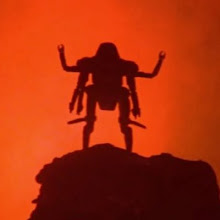
In 2003, Paul McCartney and Ringo Starr sanctioned a minimalist re-release of the Beatles' final album, Let It Be, originally released in May of 1970. (Apparently, George Harrison also approved of this idea before his death to cancer in 2001.). Originally, the now thirty eight year old album was saddled with orchestration and other production value characteristic of Phil Spector, the "Wall of Sound" auteur who is now remembered more for his bizarre behavior and second degree murder mistrial just late last year.
It was John Lennon who invited Spector to jazz up the Let It Be recording sessions -- a move which irked McCartney. In his editorial review of the re-release, Jerry McCulley of Amazon.com summarizes the turbulent history of the Let It Be recording sessions and the drama thereof:
Re-recorded, remixed, overdubbed and repackaged--all before its 1970 American release, mind you--Let It Be has long been the most second-guessed album in the Beatles otherwise sterling catalog. This curious, three-decade-late, stripped-down rethink offers up yet another spin on what started as a back-to-the-roots album/documentary project called Get Back in January, 1969, but ended up as the band's de facto swan song 18 months later. Paul McCartney in particular has long been irked by producer Phil Spector's grandiose orchestra and choir overdubs to the title track and "The Long and Winding Road," and indeed the "bare" versions here have a distinct, plaintive charm lacking in Spector's typical pomp. All the various snippets of studio and live chatter that seasoned the original have been removed, leaving the recordings to be judged on their essentially live-in-the-studio merits. If the intent was to "de-Spectorize" the album, the inclusion of John Lennon's 1968 benefit track "Across the Universe" and George Harrison's "I Me Mine" (which marked the last-ever Beatles session in January, 1970) in their original versions seems equally odd, the legendary producer having appended them to the album's original track listing in the first place. The rambling "bonus disc" of conversation and song snippets culled from hundreds of hours of session and film tapes may fascinate diehard fans, but it also underscores the murky, often unfocused state of affairs the Fabs found themselves in during the last year of their remarkable career.
Ordinarily, one should remain skeptical of an artist's attempt to rework, reconfigure or reinvigorate an artistic work from his or her past. Artists, like everyone else, change with the passage of time, and it is natural to look back upon one's work and occasionally wince. It is, however, entirely unnecessary for creators of artistic works to revisit their oeuvre decades later and make minor, and oftentimes tacky, edits and alterations based on subsequent changes in one's style or the latest developments in technology. Indeed, it was such advances in technology, in part, that prompted McCartney and Starr in this endeavor, according to this statement quoted on E! Online News:
If we had today's technology back then, it would sound like this because this is the noise we made in the studio. It's all exactly as it was in the room. You're right there now.
Ah, technological advances. George Lucas menaced his original Star Wars trilogy with computer generated clutter for their 1997 special edition re-releases. (Lucas's malfeasance turned the dark, austere Empire Strikes Back into an overcooked Saturday morning nightmare.). Steven Spielberg couldn't resist the opportunity to digitally delete firearms from the hands of certain actors in E.T. simply because his politics had changed. Even the long irrelevant Axl Rose was still tinkering with "Sweet Child of Mine" as of 1999.
Alas, poor Axl, we knew him.
But does Let It Be present a different situation? Does it make a difference that McCartney originally conceived of the album in this fashion? Apparently, the Beatles broke apart due to creative differences before the album could be completed, and thereupon, Lennon approached Spector. Was McCartney prevented from realizing his vision for the album? (Apologists for Lucas will say that his stalwart vision of the trilogy was prevented by the state of technology at the time, but like most things Lucas says these days, that's utter and complete nonsense. He just wants to sell more Pepsi to make tie-in profits to reinvest into his production company in order to release more computer generated clutter in order to sell more Pepsi to make tie-in profits to reinvest into his production company and ad infinitum, as nauseum, et cetera.).





1 comment:
The story told by George Martin - as I recall, is Lennon quite adamantly directing Martin that he (Lennon) didn't want any more of his (Martin's), uh...'Shit'.
Meaning, Lennon was the one that didn't want orchestrations and over-dubs. He and the Beatles wanted to make a straight rock n roll album.
So, he gets what he didn't want from Martin...from Spector.
Taking the original recordings and making the originally intended album 40 years later, is more akin to Donner making the 'original' Superman II movie using only scenes shot by Donner, 30 years after the Lester version — which added NEW scenes and re-shot previously shot scenes for 60% of the 1980 released movie.
Plus, Donner isn't having copies of Lester's movie destroyed. Or preventing anyone from preferring it.
And yes, I'm aware of the coincedence of Lester working on The Beatles and the Superman movies.
— Kit Moonray —
Post a Comment